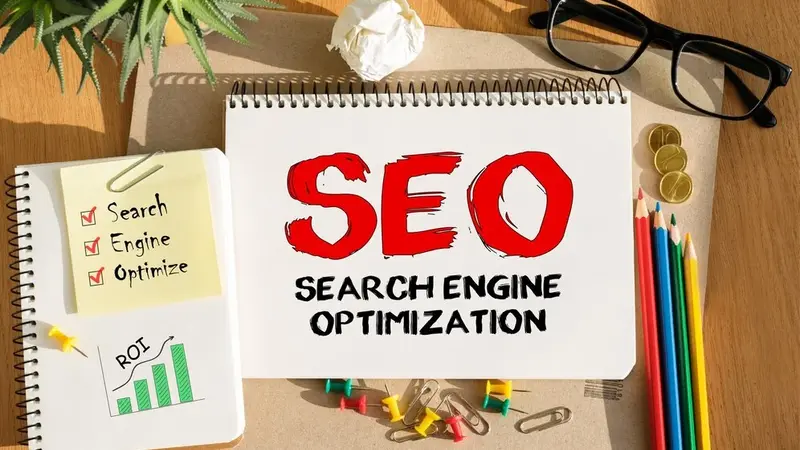Table of Contents
- Introduction to SEO Strategies
- Understanding the Importance of SEO
- Keyword Research and Its Impact
- On-Page Optimization Techniques
- Off-Page SEO and Link Building
- Leveraging Technical SEO
- The Role of Analytics in SEO
- Future Trends in SEO
Effective SEO tactics are necessary to improve online exposure and increase traffic. Focus on keyword optimization, high-quality content creation, and site speed. Build backlinks to boost domain authority and ensure mobile-friendliness for better accessibility. Regular performance tracking and adjustments help maintain relevance and grow search rankings.
Introduction to SEO Strategies
Standing out amidst fierce competition is no small feat in the bustling digital marketplace. SEO, or search engine optimization, has emerged as a critical tactic for raising a website’s exposure and successfully connecting with wider audiences. Keeping up with the most recent trends and practices, including insights from an SEO agency, helps create an effective plan suited to specific business goals and gives you a competitive advantage. Businesses hoping to increase organic traffic must have a solid online presence and a well-thought-out SEO plan.
SEO is a crucial field that involves understanding search engine algorithms and optimizing website elements to improve rankings. It increases visibility, enhances user engagement, and drives conversions. The scope of SEO includes crafting engaging content and making technical adjustments to a website’s structure, contributing to a robust online presence.
Understanding the Importance of SEO
SEO’s significance must be balanced, as it largely determines online success. Effective SEO enhances a site’s visibility and significantly increases the chances of converting visits into actionable outcomes. According to research by BrightEdge, organic search drives 53.3% of all website traffic, underscoring the potential impact that strategic SEO implementation can have in the digital sphere. Focusing on SEO means investing in long-term growth that transcends immediate advertising gains.
By optimizing different aspects of a website, you are enhancing the user experience, which plays a crucial role in determining success metrics such as page views and session duration. Techniques like ensuring fast page loading times and optimizing for mobile use significantly retain user attention and promote engagement. As competition intensifies, continually refining your site’s SEO strategy proves crucial for maintaining relevancy and authority within your industry.
Keyword Research and Its Impact
Keyword research is the backbone of any successful SEO campaign, acting like a compass directing content creation and optimization efforts. Identifying keywords ensures your content speaks directly to your target audience’s search queries. Tools like Google’s Keyword Planner and SEMrush can help with this task, uncovering high-value keywords pertinent to your niche. Consider referencing Moz’s Beginner’s Guide to SEO for a detailed keyword selection and utility exploration.
Effective keyword strategy focuses on high search volume words and long-tail keywords, which more accurately reflect the specific user intent. By prioritizing these focused terms, you capture more targeted traffic—often showing higher conversion rates as users seeking specific solutions are more likely to engage meaningfully with your content. Incorporating keywords naturally within well-crafted content strengthens the relevance and quality of your website.
On-Page Optimization Techniques
On-page SEO encompasses a range of factors that enhance individual web pages to earn higher placement in search results. This includes refining title tags and meta descriptions and strategically using header tags to provide clear content hierarchies. Optimizing these components using pertinent keywords increases your page’s relevancy and chances of appearing well in search results.
Moreover, optimizing images using descriptive file names and providing alt text is critical, which helps search engines understand your page’s content context. Improving these elements makes the information more accessible to a larger audience, including those who use assistive technology, and raises its SEO value. This comprehensive approach results in more engaging and meaningful interactions with your site, reinforcing its reliability and authority.
Off-Page SEO and Link Building
Off-page SEO emphasizes actions outside your website that affect search engine rankings. Link building is paramount, as acquiring quality backlinks from authoritative sites significantly boosts your publication’s credibility. Establishing these connections requires creating shareable, informative content and cultivating relationships with relevant websites or bloggers.
Approaching link building with a strategy steering towards quality over quantity ensures that your SEO gains are sustainable over time. A detailed understanding of effective link-building techniques can be found by perusing a guide to link-building, which emphasizes the role of valuable and unique content as a cornerstone for prompting others to engage with your site.
Leveraging Technical SEO
Focusing on technical SEO involves optimizing your website’s non-content elements, such as site architecture, script and code validations, and server configurations. Critical components like having a fast-loading website, ensuring mobile optimization, and maintaining secure HTTP connections contribute significantly to your site’s overall performance and user enjoyment.
Regularly utilizing tools like Google’s PageSpeed Insights and Search Console helps identify and mitigate technical bottlenecks, offering actionable insights into improving critical areas. By keeping your backend structure efficient, search engines can better crawl and index your website, increasing its exposure and relevancy in search engine results.
The Role of Analytics in SEO
Analytics forms the backbone of informed SEO strategy adjustments, offering concrete insights into performance metrics and user interactions with your site. Tools like Google Analytics provide comprehensive information on user activity, conversion rates, and traffic sources. This data supports data-driven decision-making, enabling continuous optimization of SEO efforts.
Understanding metrics such as bounce rates, session duration, and conversion paths can illuminate areas of improvement, guiding targeted enhancements for better results. Analytics empowers businesses to pivot in response to the digital landscape’s rapid changes, ensuring their SEO strategies remain relevant and effective over time.
Future Trends in SEO
Like any digital strategy, SEO continually evolves, with new trends poised to shape the industry. Voice search optimization is growing, with projections suggesting that it may account for over half of all searches by 2025, increasing the importance of optimizing for natural, conversational query formats.
Additionally, integrating artificial intelligence in search algorithms demands efficient content structuring to remain competitive. This technological advancement calls for content marketers to stay agile, promptly adjusting approaches to align with savvy AI models that analyze and deliver personalized search results. Keeping abreast of these trends ensures your SEO strategies remain innovative, competitive, and effective in an ever-changing digital landscape.




